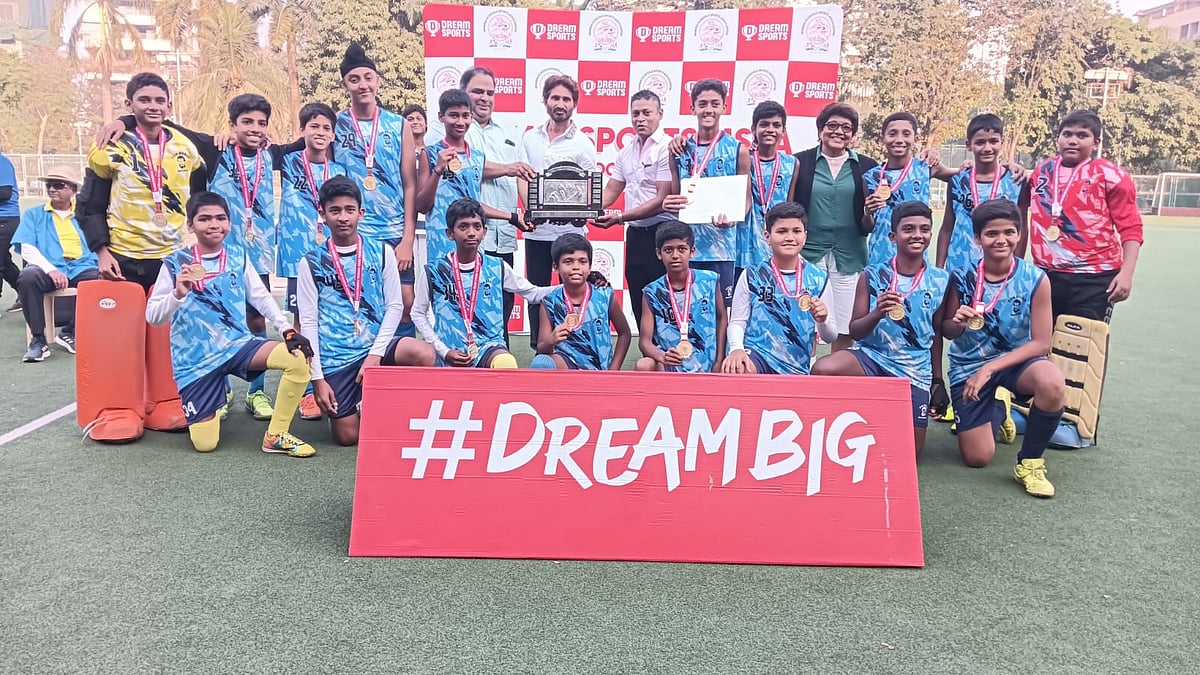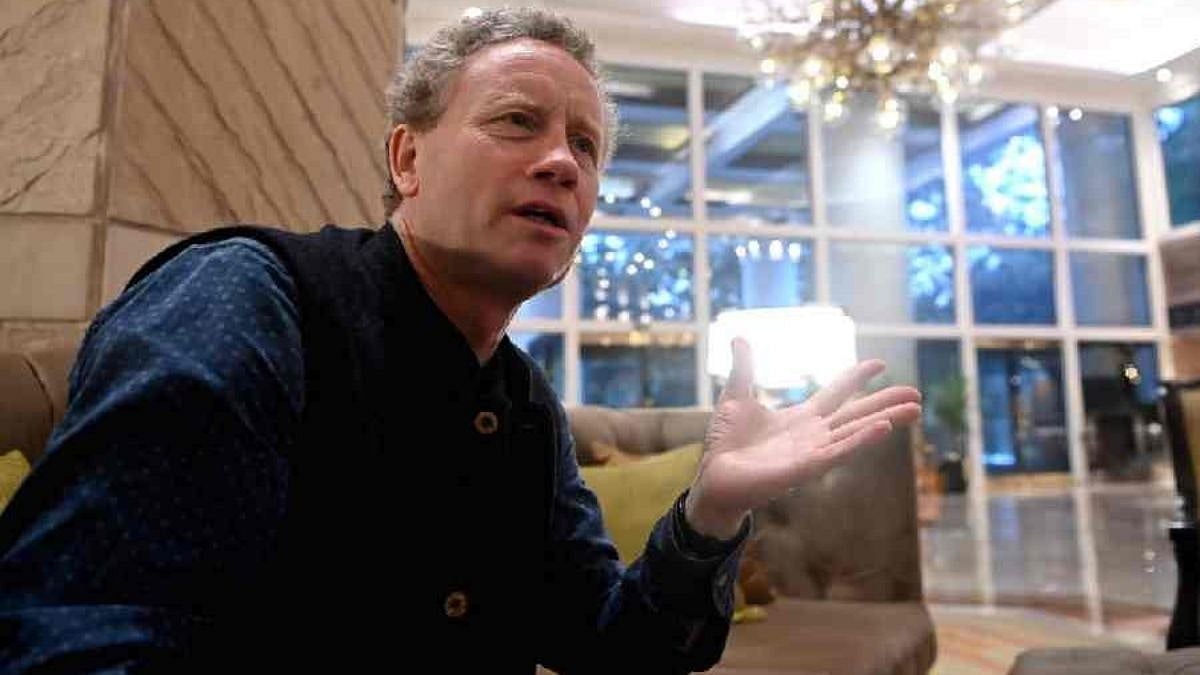Men win the glory in the march of history, and the contribution of women is often forgotten. Whether it is India’s struggle for Independence or the World Wars, women not just came out of their homes to take the place of men in factories and farms, but many also actively participated on war fronts.
A new film, now streaming--A Call To Spy-- is about two women who engaged in espionage during WW-II under extremely dangerous conditions, well aware of the price they would have to pay, if captured—torture, rape and execution by the Gestapo, the Nazi forces not known to be fair, kind or just. The women were given cyanide pills as an option for a more dignified death than being tormented by the Nazis.
Noor Inayat Khan
Directed by Lydia Dean Pilcher, produced and written by Sarah Megan Thomas, who also plays one of the leads, the film is of greater interest to Indian viewers because of Radhika Apte’s role as the legendary Noor Inayat Khan (a film titled Enemy of the Reich has been made on her life in 2014, and at least three books published, the best known being Spy Princess by Shrabani Basu).
When France was occupied by Hitler’s army, the Allied Forces were worried; they needed a better and more inconspicuous spy network and the then British prime minister Winston Churchill got his new spy agency, the Special Operations Executive (SOE), to recruit women and send them to France to conduct “ungentlemanly warfare.”
The job of identifying the women and organizing their training fell to “spymistress” Vera Atkins (played by Stana Katic), working as secretary to Colonel Maurice Buckmaster, and fighting her own battle with racism and sexism. In spite of doing all the planning and execution of this sensitive operation, she is not granted British citizenship, till much later, or given the rank she deserves because she is a Romanian Jew and mistrusted by others in her department.
Tough training
Virginia Hall (Sarah Megan Thomas) is a fierce American, who is denied a career as a diplomat due to her ‘disability’—she lost her leg in an accident and has a heavy wooden prosthesis she names “Cuthbert”. She goes through the same tough training that the men do, including torture simulation, and when told that the Nazis won’t go easy on her because she is a woman, snaps back that she won’t go easy on them either because they are men.
The other woman Atkins recruits is Noor Inayat Khan, the Russia-born daughter of an American woman and Indian Muslim Sufi musician. Noor, code-named Madeleine, is an expert wireless operator, whose skills are invaluable behind enemy lines. A descendant of Tipu Sultan, a writer, musician and pacifist, she agrees to go to France, without having any guarantee of protection or even safe return. It is not exciting and glamorous work as so many films portray—she has to be on the run all the time, lugging around the heavy wireless equipment, sleeping in alleyways and going hungry.
France was then a hotbed of fear, collaboration and suspicion, when people were renouncing their friends and neighbours and nobody could be trusted. The Germans were sharp, efficient and cruel, not the bumbling idiots as so many war films portray them. Virginia got out alive, but Noor was betrayed and captured. She refused to leave when she could have, because she believed her work was crucial. She was imprisoned and tortured but did not give up any names. She was finally executed in a concentration camp at Dachau with a bullet to the back of her head. She was only 30 years old.
She was posthumously awarded the George Cross, the United Kingdom’s highest civilian award, in 1949 and the French Croix de Guerre, a military honour awarded by France in 1946. A short life, but lived with courage.
Some credit
Virginia Hall could not fulfill her dream of being a diplomat but she joined the CIA after the War, and when the work of women – or “lady spies” as they were known--was acknowledged, she got some of her due. Three books were written about her, and two films produced. According to a piece by Greg Myre in npr.org, “British author Sonia Purnell wrote one of the books, A Woman Of No Importance, and she explains the irony in the biography's title. Through a lot of her life, the early life, she was constantly rejected and belittled. She was constantly just being dismissed as someone not very important or of no importance."
Craig Gralley, a retired CIA officer who also wrote a book called Hall of Mirrors about her, is quoted in the piece as saying, “Virginia Hall, to a certain extent, was invisible. She was able to play on the chauvinism of the Gestapo at the time. None of the Germans early in the war necessarily thought that a woman was capable of being a spy."
She changed her appearance and code names frequently and worked tirelessly to find safe houses for British spies, and organize the rescue of wounded men. She managed to get away from under the nose of the infamous Klaus Barbie, the Butcher of Lyon, who called her “that limping bitch” and had flyers of Hall posted everywhere, with a drawing of her and the words, “The Enemy's Most Dangerous Spy — We Must Find And Destroy Her!"
She made a terribly difficult journey on foot, walking for three days over 50 miles over the snow-covered Pyrenees Mountains to reach Spain and return to London, only to come right back into the thick of the French Resistance, and causing even more damage to the Germans by blowing up bridges and sabotaging trains.
Amazing exploits
The remarkably brave and strong-willed woman was one of the greatest spies of her time, who thrived on adventure and risk, but did not crave public recognition, turning down President Harry Truman’s offer to honour her at a ceremony in the White House. She was the only civilian woman to receive the Distinguished Service Cross in World War II. She retired in 1966 and died in 1982 and even when her name is out of self-chosen obscurity, the real chronicle of Virginia Hall’s amazing exploits had to be dug out and pieced together by dedicated researchers, when so many of the files and documents were lost and contemporaries dead.
Vera Atkins lived long enough (she died in 2000, aged 92) to act as consultant on several WW-II projects, was the basis of dozens of fictional characters and has been portrayed by various actresses over the years.
There are hundreds of stories of women who helped change the course of history, and did not want—or get—anything in return. For them the great satisfaction of fulfilling their destinies was enough. However, these narratives must reach the mainstream and inspire women.
Today, the CIA recruits trainees in a building quite recently renamed The Virginia Hall Expeditionary Center. Years after her death, Virginia Hall is finally a woman of some importance.
The writer is a Mumbai-based columnist, critic and author.









